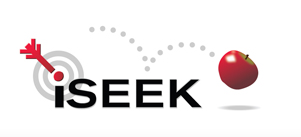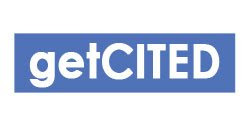Aim and Scope
Technology Reports of Kansai University (ISSN: 04532198) is a peer-reviewed journal. The journal covers all sort of engineering topic as well as mathematics and physics. the journal's scopes are
in the following fields but not limited to:
Electrical Engineering and Telecommunication Section:
Electrical Engineering,
Telecommunication Engineering,
Electro-mechanical System Engineering,
Biological Biosystem Engineering,
Integrated Engineering,
Electronic Engineering,
Hardware-software co-design and interfacing,
Semiconductor chip,
Peripheral equipments,
Nanotechnology,
Advanced control theories and applications,
Machine design and optimization ,
Turbines micro-turbines,
FACTS devices ,
Insulation systems ,
Power quality ,
High voltage engineering,
Electrical actuators ,
Energy optimization ,
Electric drives ,
Electrical machines,
HVDC transmission,
Power electronics.
Computer Science Section :
Software Engineering,
Data Security ,
Computer Vision ,
Image Processing,
Cryptography,
Computer Networking,
Database system and Management,
Data mining, Big Data, Robotics ,
Parallel and distributed processing ,
Artificial Intelligence ,
Natural language processing ,
Neural Networking, Distributed Systems ,
Fuzzy logic, Advance programming,
Machine learning,
Internet & the Web,
Information Technology ,
Computer architecture,
Virtual vision and virtual simulations,
Operating systems,
Cryptosystems and data compression,
Security and privacy,
Algorithms,
Sensors and ad-hoc networks,
Graph theory,
Pattern/image recognition,
Neural networks.
Lizi Jiaohuan Yu Xifu/Ion Exchange and Adsorption
Fa yi xue za zhi
Civil and architectural engineering :
Architectural Drawing,
Architectural Style,
Architectural Theory,
Biomechanics,
Building Materials,
Coastal Engineering,
Construction Engineering,
Control Engineering,
Earthquake Engineering,
Environmental Engineering,
Geotechnical Engineering,
Materials Engineering,
Municipal Or Urban Engineering,
Organic Architecture,
Sociology of Architecture,
Structural Engineering,
Surveying,
Transportation Engineering.
Mechanical and Materials Engineering :
kinematics and dynamics of rigid bodies,
theory of machines and mechanisms,
vibration and balancing of machine parts,
stability of mechanical systems,
mechanics of continuum,
strength of materials,
fatigue of materials,
hydromechanics,
aerodynamics,
thermodynamics,
heat transfer,
thermo fluids,
nanofluids,
energy systems,
renewable and alternative energy,
engine,
fuels,
nanomaterial,
material synthesis and characterization,
principles of the micro-macro transition,
elastic behavior,
plastic behavior,
high-temperature creep,
fatigue,
fracture,
metals,
polymers,
ceramics,
intermetallics.
Chemical Engineering :
Chemical engineering fundamentals,
Physical, Theoretical and Computational Chemistry,
Chemical engineering educational challenges and development,
Chemical reaction engineering,
Chemical engineering equipment design and process design,
Thermodynamics,
Catalysis & reaction engineering,
Particulate systems,
Rheology,
Multifase flows,
Interfacial & colloidal phenomena,
Transport phenomena in porous/granular media,
Membranes and membrane science,
Crystallization, distillation, absorption and extraction,
Ionic liquids/electrolyte solutions.
Food Engineering :
Food science,
Food engineering,
Food microbiology,
Food packaging,
Food preservation,
Food technology,
Aseptic processing,
Food fortification,
Food rheology,
Dietary supplement,
Food safety,
Food chemistry.
Physics Section:
Astrophysics,
Atomic and molecular physics,
Biophysics,
Chemical physics,
Civil engineering,
Cluster physics,
Computational physics,
Condensed matter,
Cosmology,
Device physics,
Fluid dynamics,
Geophysics,
High energy particle physics,
Laser,
Mechanical engineering,
Medical physics,
Nanotechnology,
Nonlinear science,
Nuclear physics,
Optics,
Photonics,
Plasma and fluid physics,
Quantum physics,
Robotics,
Soft matter and polymers.
Mathematics Section:
Actuarial science,
Algebra,
Algebraic geometry,
Analysis and advanced calculus,
Approximation theory,
Boundry layer theory,
Calculus of variations,
Combinatorics,
Complex analysis,
Continuum mechanics,
Cryptography,
Demography,
Differential equations,
Differential geometry,
Dynamical systems,
Econometrics,
Fluid mechanics,
Functional analysis,
Game theory,
General topology,
Geometry,
Graph theory,
Group theory,
Industrial mathematics,
Information theory,
Integral transforms and integral equations,
Lie algebras,
Logic,
Magnetohydrodynamics,
Mathematical analysis.











